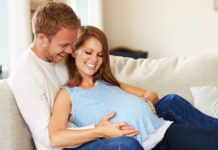In the ever-expanding world of online commerce, choosing the right platform to sell your products is a critical decision for any budding entrepreneur. Two popular options are Etsy and creating your own website. Let us explore the basics of the etsy shop website and weigh their pros and cons to help you make an informed choice.
What is Etsy?
Etsy is a vibrant online marketplace that brings together small indie artists, creators, and collectors. Here is what you need to know:
- Self-Made Goods: Everything on Etsy is self-made, collected, curated, and sold by its sellers. If you create unique handmade items, vintage goods, or personalized crafts, Etsy is an excellent platform to showcase your talent.
Pros of Selling on Etsy:
- Great Customer Exposure: Etsy has a large and engaged customer base, providing exposure to potential buyers.
- Easy-to-Use Interface: Setting up your shop and managing listings is straightforward.
- Low-Cost Entry: Starting an Etsy shop website requires minimal investment compared to building your own etsy shop website.
Cons of Selling on Etsy:
- Item Category Limit: Etsy restricts the types of products you can sell.
- Lack of Store Customization: Your shop’s appearance is somewhat limited.
2. Your Own Website: Building Your Brand
What is an eCommerce Website?
An eCommerce website is a standalone platform that you create and manage. Here is what you should consider:
- Total Control: With your own website, you have complete control over design, branding, and functionality.
Pros of Selling on Your Own Website:
- Flexible and Personalized Tools: Customize your site to match your brand vision.
- Great Scalability: As your business grows, your website can evolve.
- No Restrictions: Sell any type of product without limitations.
Cons of Selling on Your Own Website:
- Limited Customer Exposure: You must invest in marketing to attract visitors.
- Higher Initial Costs: Building and maintaining a website can be more expensive.
3. Etsy vs own website: Time & money
An ideal platform for your business model should be affordable. The time and money factors for Etsy vs own website are as follows.
Selling on Etsy
One of the advantages of Etsy is seen in the account setting process. Creating an Etsy business account doesn’t take you much time. All you need is to have a consumer account to register a seller account. After completing the account setup, you are set to start selling on the platform.
In terms of cash, Etsy is known for its low barriers to entry. Overall, you have to deal with only 5 types of fees, which are:
- Subscription fee: Either free or $10 a month for additional features.
- Listing fee: The fee for listing on Etsy is a set amount of 20 cents per listing. You are also charged a renewal fee of 20 cents per sale.
- Transaction fee: 6.5% of each transaction cost.
- The payment processing fee (charged when using Etsy payment) is 3% + 0.25 (for US sellers).
- Advertising fee: Twelve or fifteen per cent based on annual revenue.
The only fee that you pay besides the flat listing fee is the other fees that you make when you sell. For that reason, Etsy is a cheap option for many online sellers.
Key Differences: Etsy vs. Own Website
Traffic & Customer Base:
- Etsy: Already has a built-in audience.
- Own Website: Requires active marketing efforts to drive traffic.
Time & Money:
- Etsy: Quick setup, lower initial investment.
- Own Website: More time-consuming but with greater long-term potential.
Inventory Management:
- Etsy: Simplified inventory tracking.
- Own Website: You handle everything independently.
Marketing & Brand Recognition:
- Etsy: Benefits from Etsy’s brand reputation.
- Own Website: You build your own brand identity.
Questions
What is Etsy, and how does it differ from having my own website?
Etsy is an online marketplace where artisans, creators, and collectors can sell their handmade, vintage, and unique goods. It provides a ready-made platform with built-in customers. Having your own etsy shop website means creating a standalone eCommerce platform tailored to your brand, where you have full control over design, functionality, and branding.
Which one is better for beginners: Etsy or my own website?
It depends on your goals. Etsy is great for quick setup and exposure, especially if you’re just starting out. Creating your own Etsy shop website requires more effort but offers long-term scalability and brand ownership.
Can I use both Etsy and my own website simultaneously?
Many sellers adopt a hybrid approach. Use Etsy for exposure and your etsy shop website for deeper engagement with your audience.
How much customization can I have on Etsy vs. my own website?
Etsy limits customization to some extent. You can personalize your shop within their framework. However, with your own Etsy shop website, you have complete control over branding, design, and functionality.
Which option is more cost-effective?
Initially, Etsy has lower costs (fees per sale), while setting up your own website may require more investment. Consider your budget and long-term vision.
How do I build brand recognition on Etsy vs. my own website?
On Etsy, leverage its reputation and social proof. On your own etsy shop website, focus on consistent branding, storytelling, and creating a memorable customer experience.
Conclusion
In conclusion, both platforms have their merits. If you’re looking for a low-risk, tried-and-tested start, Etsy is a great choice. However, if you envision long-term growth and want to build a scalable brand, investing in your own etsy shop website is the way to go. Consider your goals, budget, and business vision to make the right decision for your unique venture!















